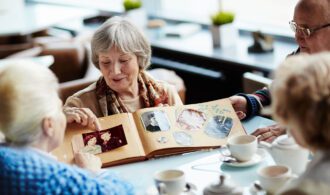Fostering Socialization and Relationships for Senior Well-Being
As our loved ones age, senior well-being becomes increasingly vital for their overall happiness and longevity.
Socialization not only provides emotional support but also plays a significant role in cognitive health and physical vitality.
However, as senior individuals may face challenges such as mobility issues, loss of loved ones, or transitioning to retirement, fostering meaningful relationships can sometimes be overlooked. In this article, we delve into the importance of socialization and relationships for the senior and explore practical strategies to help them stay connected and engaged.
Understanding the Importance of Socialization:
Socialization is essential for individuals of all ages, but it holds particular significance for senior well-being. As people age, they may experience changes in their social circles, such as retirement, children moving away, or the loss of friends and family members. These transitions can lead to feelings of loneliness, isolation, and even depression if not addressed.
Research consistently demonstrates the positive impact of socialization on the mental and physical health of senior individuals. Social interactions stimulate the brain, helping to maintain cognitive function and memory. Additionally, staying socially active can lower the risk of developing conditions like dementia and Alzheimer’s disease.
The Role of Relationships in Senior Well-being:
Meaningful relationships are the cornerstone of a fulfilling life, regardless of age. For the senior, nurturing connections with family members, friends, and peers can provide a sense of belonging, purpose, and joy. Whether it’s sharing stories, participating in activities together, or simply enjoying each other’s company, these relationships contribute significantly to their overall happiness and quality of life.
Furthermore, strong social ties have been linked to improved physical health among the senior. Studies have shown that individuals with robust social networks tend to have lower blood pressure, reduced risk of cardiovascular disease, and better immune function.
Practical Strategies for Fostering Socialization for Senior Well-Being:
1. Encourage Participation in Group Activities:
Encourage your loved ones to join clubs, classes, or senior centers where they can engage in activities tailored to their interests. Whether it’s art classes, book clubs, or fitness groups, these gatherings provide opportunities for social interaction and new experiences.
2. Utilize Technology:
Embrace technology as a tool to facilitate social connections, especially for those who may have limited mobility or live far from loved ones. Encourage them to use video calls, social media platforms, or online forums to stay in touch with family and friends. Many communities also offer virtual events and support groups specifically designed for seniors.
3. Volunteer Opportunities:
Engaging in volunteer work not only benefits the community but also fosters a sense of purpose and fulfillment for the senior. Whether it’s tutoring children, assisting at a local charity, or participating in community clean-up efforts, volunteering provides meaningful social interactions and a sense of contribution that improves overall Senior well-being.
4. Maintain Regular Communication:
Regular communication is essential for staying connected with senior loved ones, especially if they live alone or in assisted living facilities. Make an effort to visit, call, or send messages regularly to check in on their well-being and share updates about your own life.
5. Promote Intergenerational Relationships:
Encourage interactions between senior individuals and younger generations to create meaningful intergenerational connections. Whether it’s spending time with grandchildren, volunteering at schools, or participating in mentorship programs, these relationships benefit both parties by fostering understanding, empathy, and companionship.
Socialization and relationships are integral components of senior well-being, playing a crucial role in their mental, emotional, and physical health. By recognizing the importance of fostering meaningful connections and implementing practical strategies to promote social engagement, we can enrich the lives of our senior loved ones and ensure they continue to thrive in their later years. Let’s make a concerted effort to prioritize socialization and relationships, creating supportive environments where our elders can flourish and enjoy fulfilling lives.
Remember, it’s never too late to cultivate new friendships, explore new interests, and strengthen existing relationships. Together, we can create communities where senior individuals feel valued, connected, and empowered to live life to the fullest.
Contact us here with questions about Generations’ senior living options.
Book a tour at a Generations Community near you.



